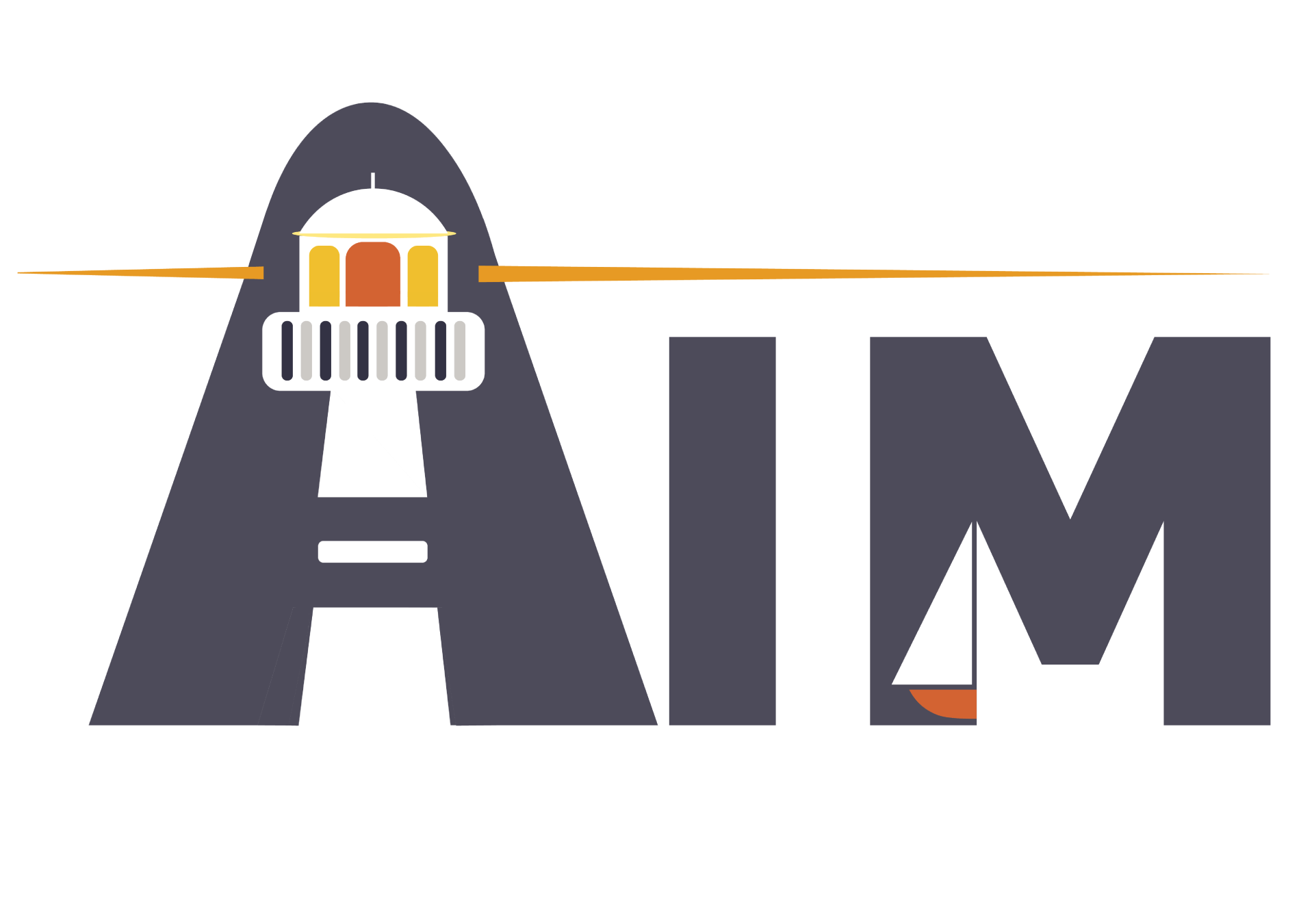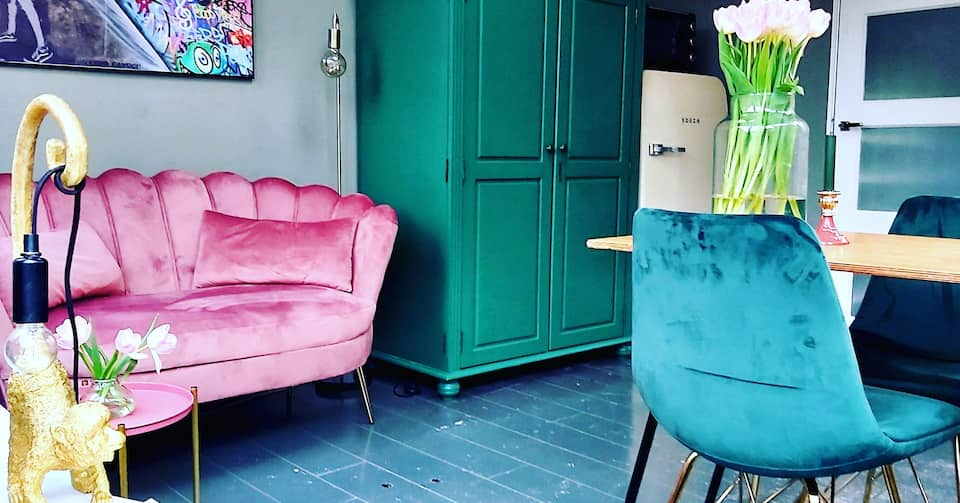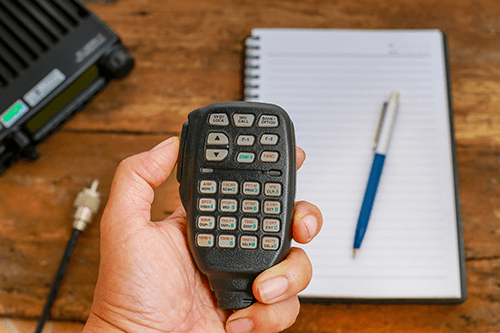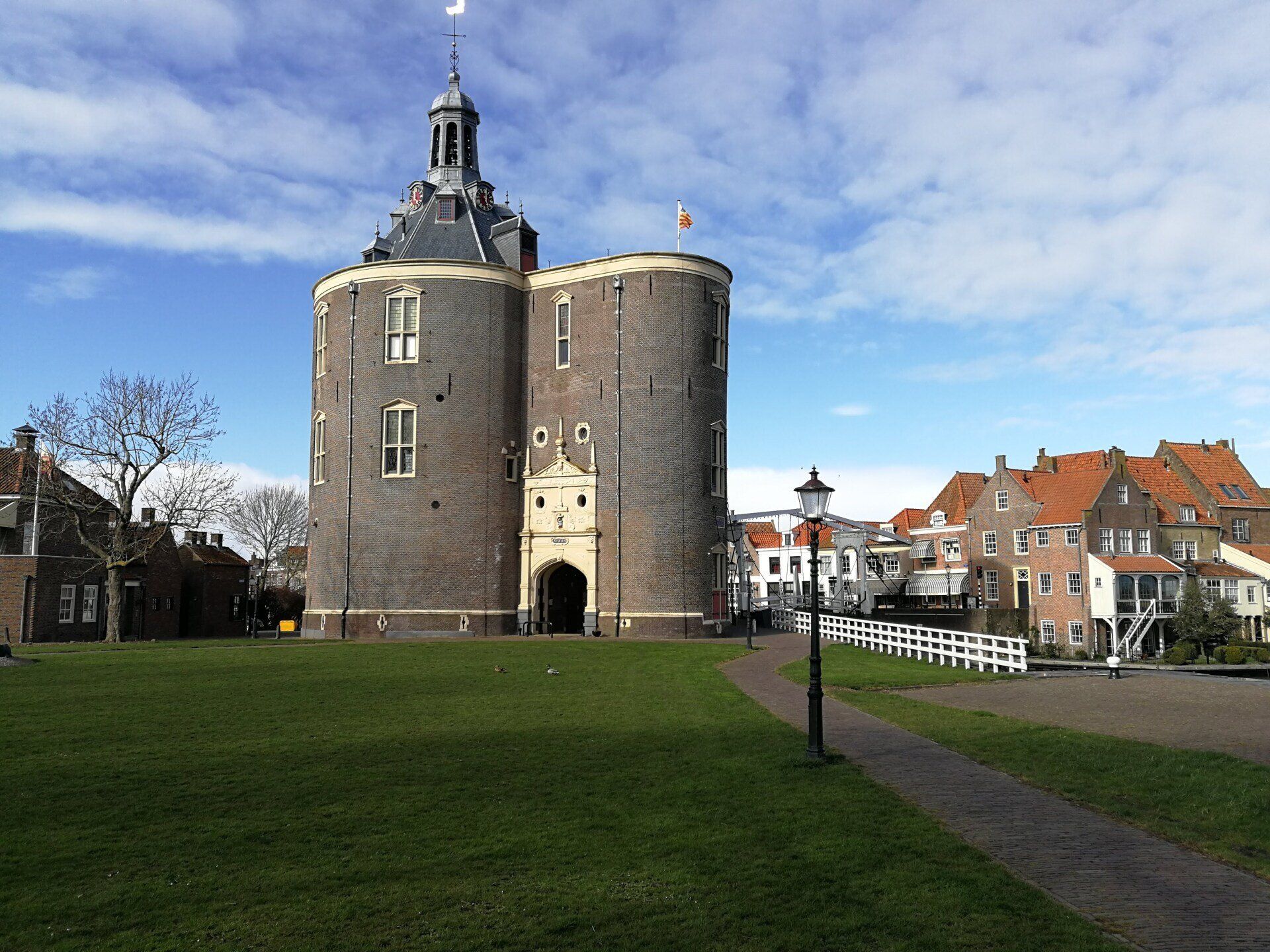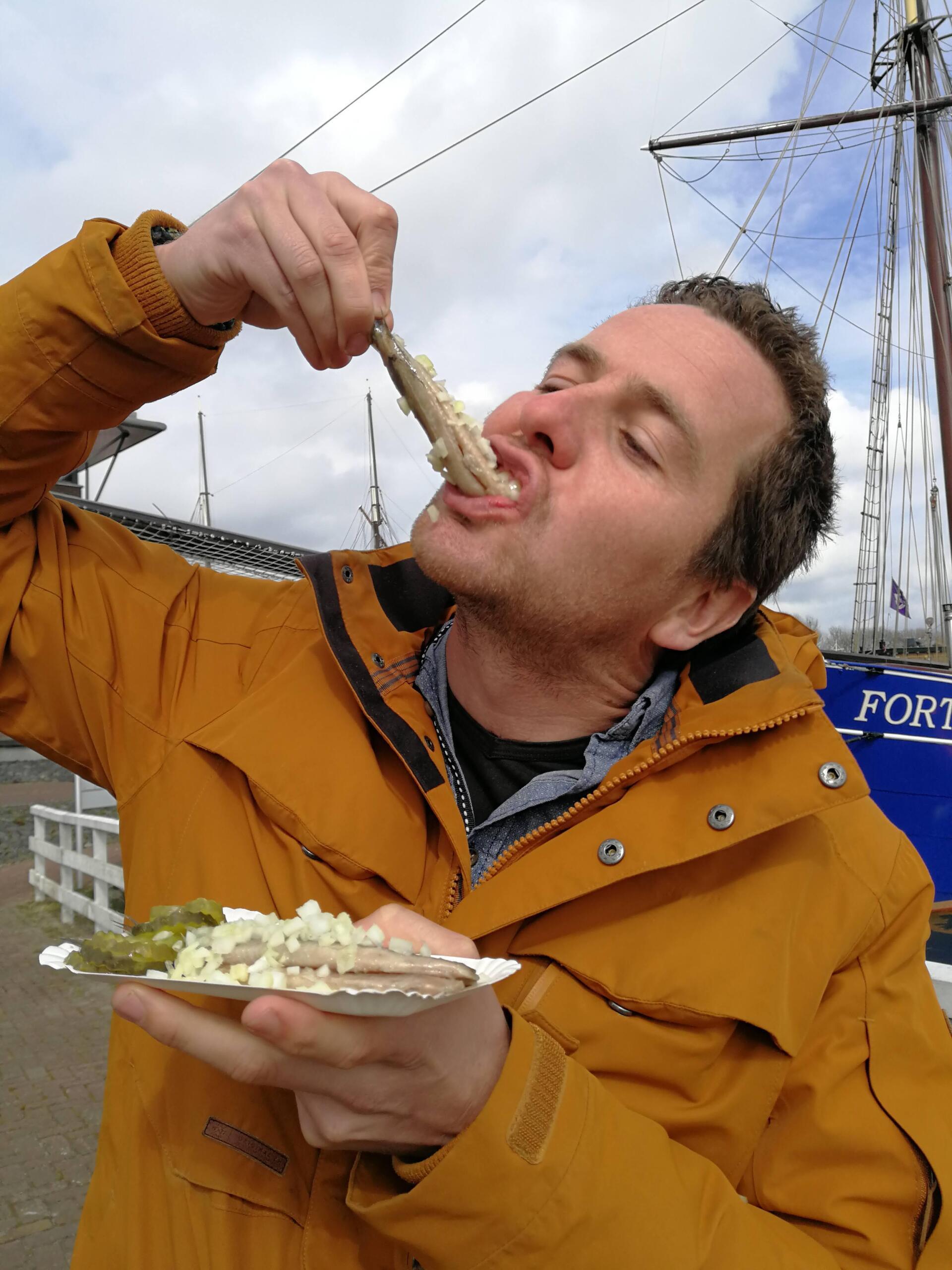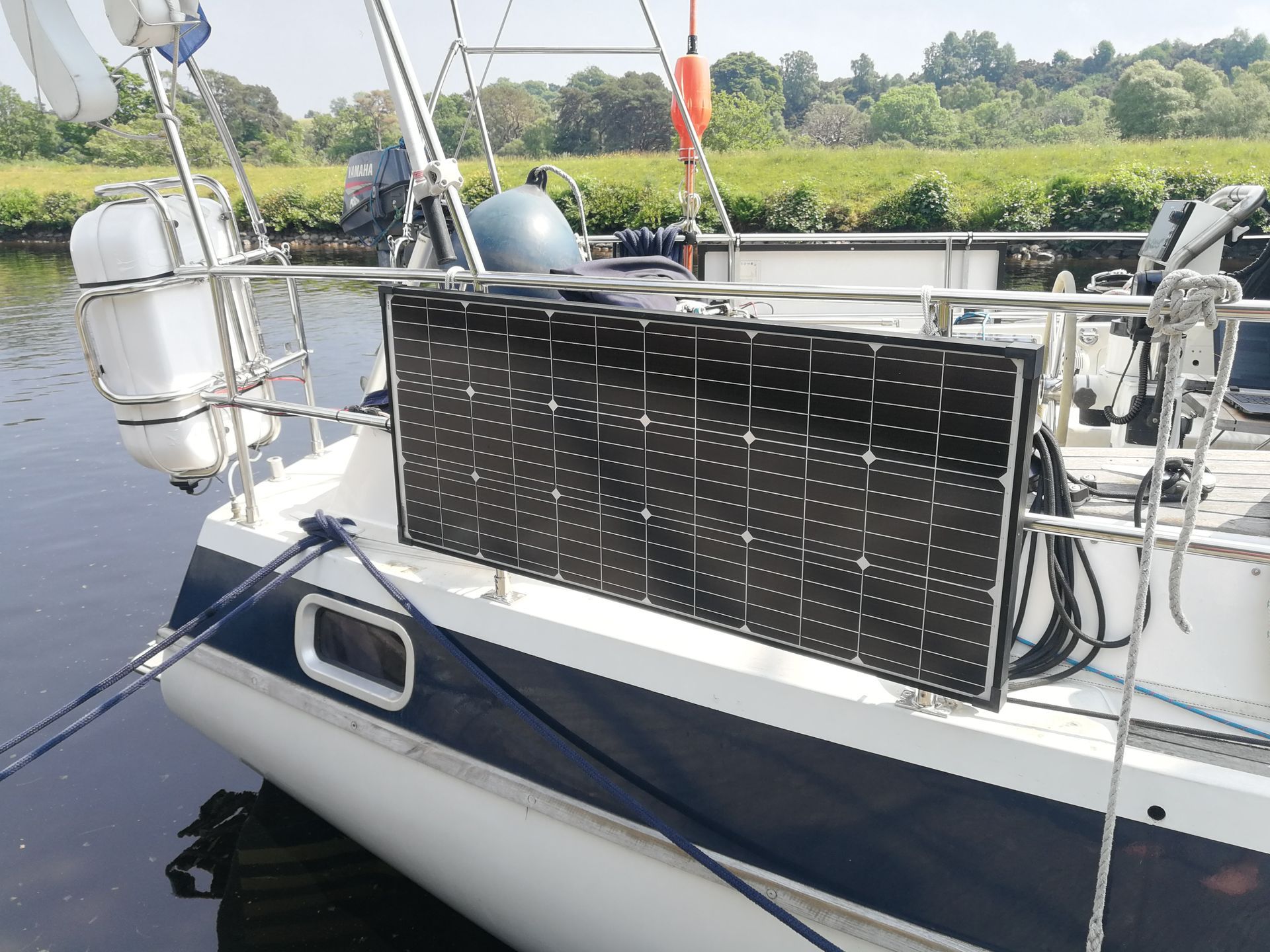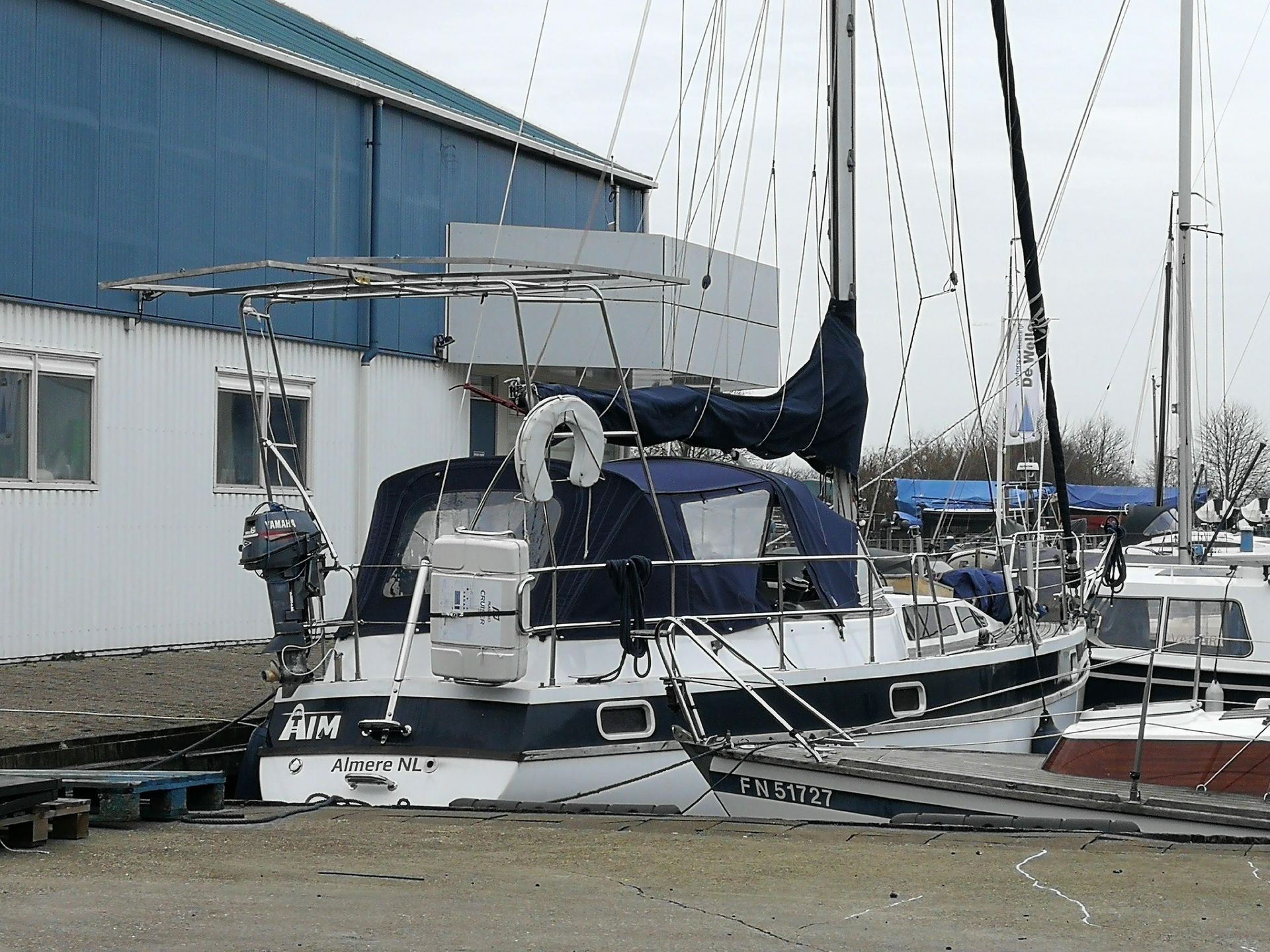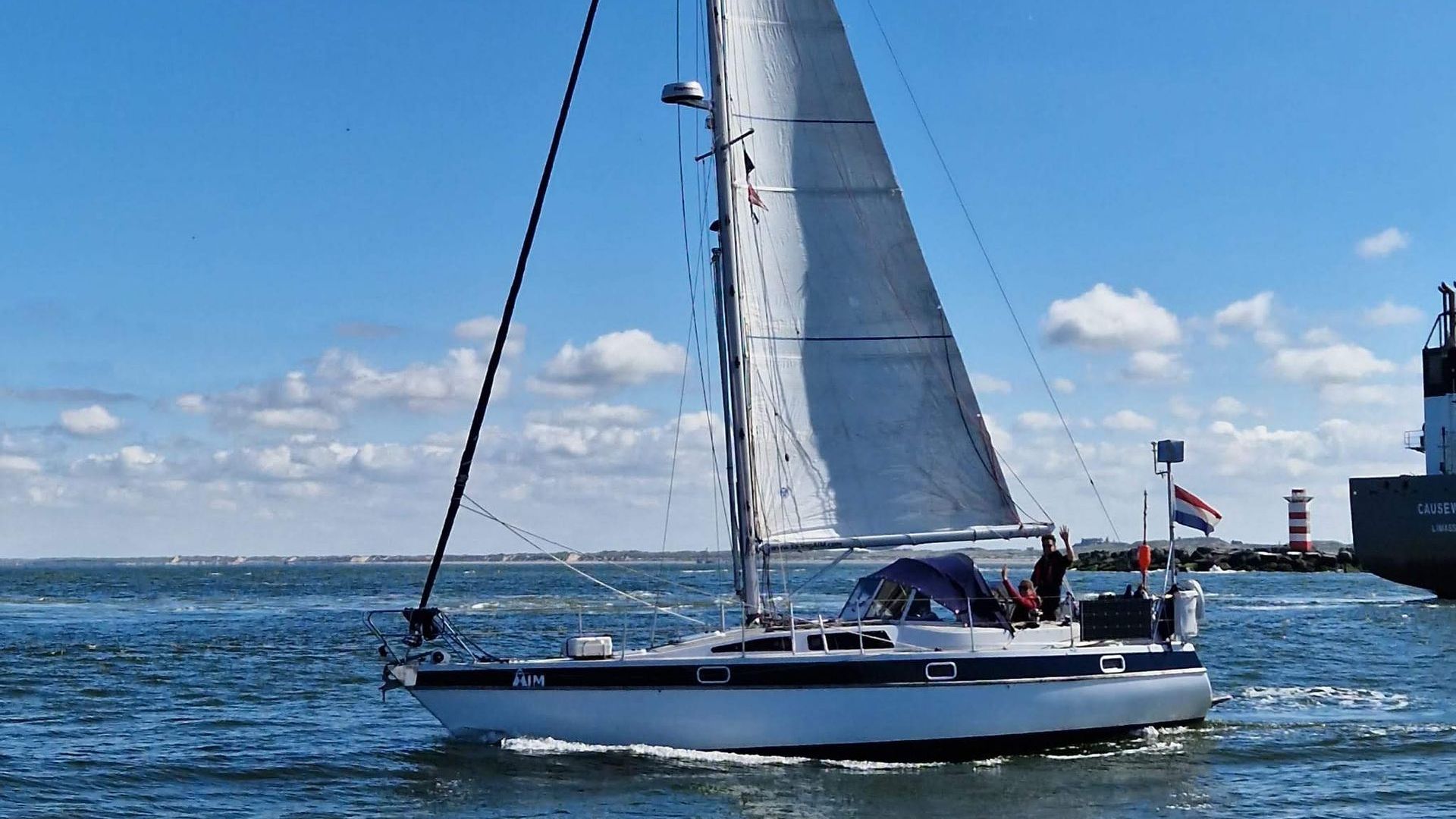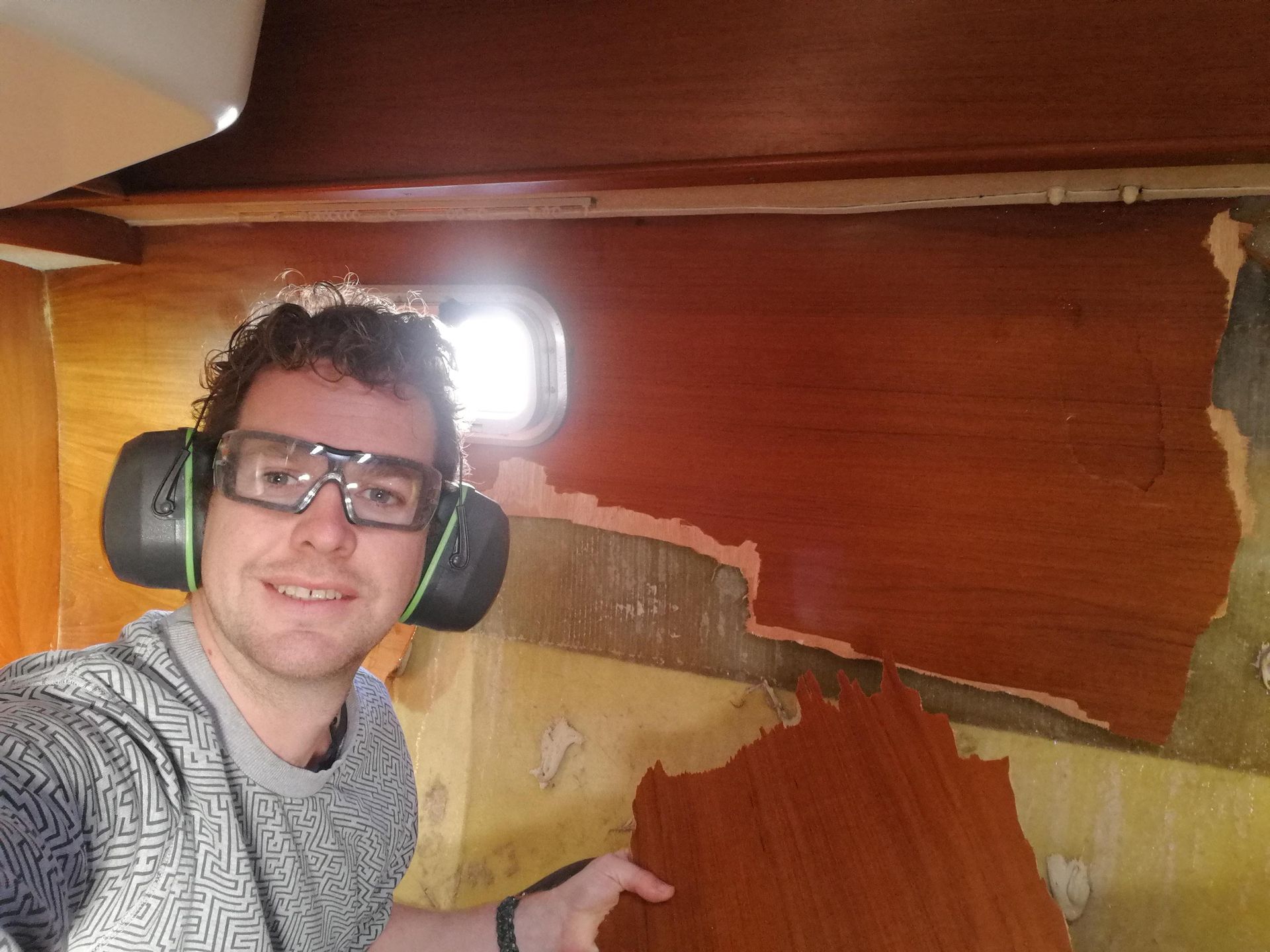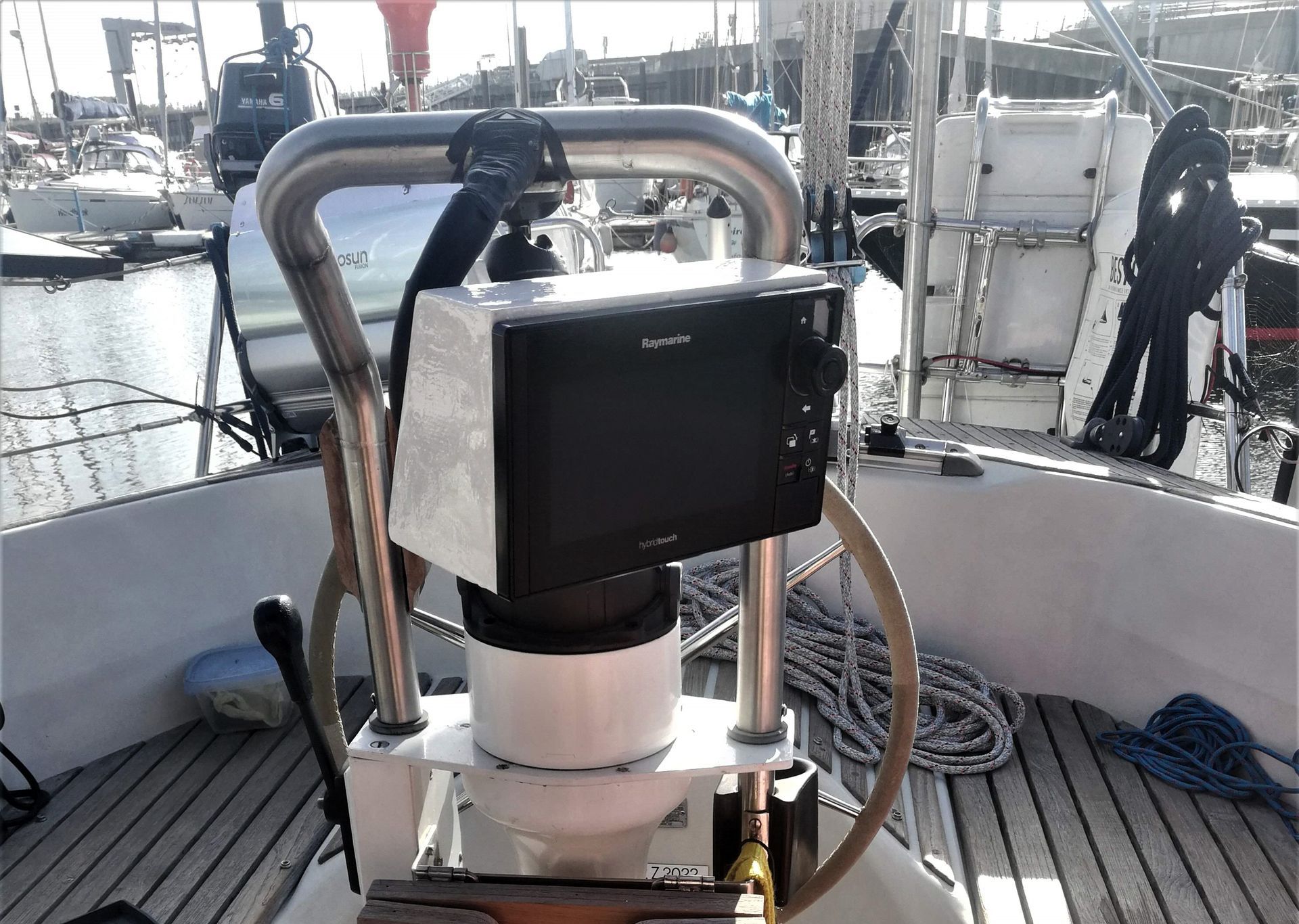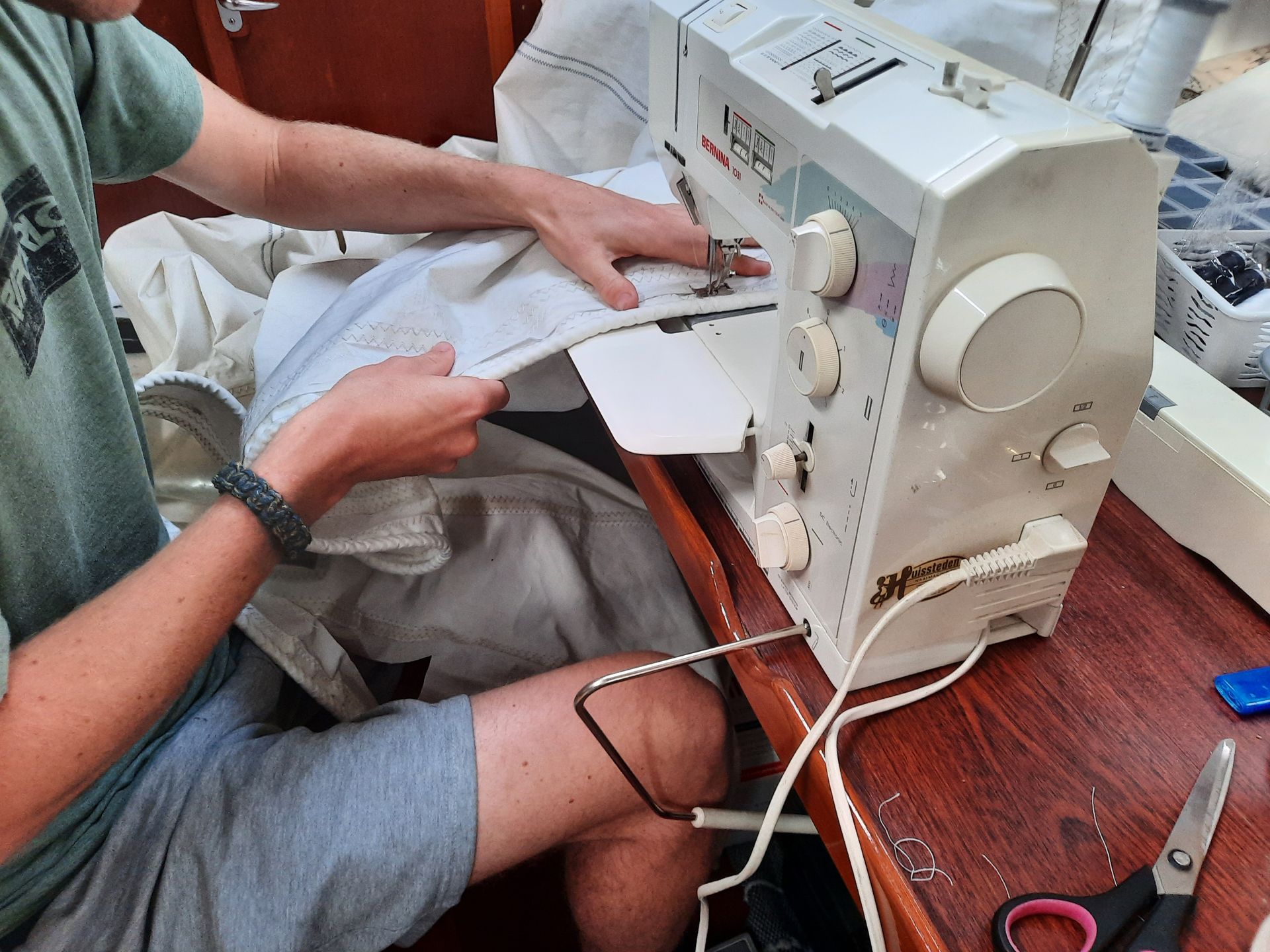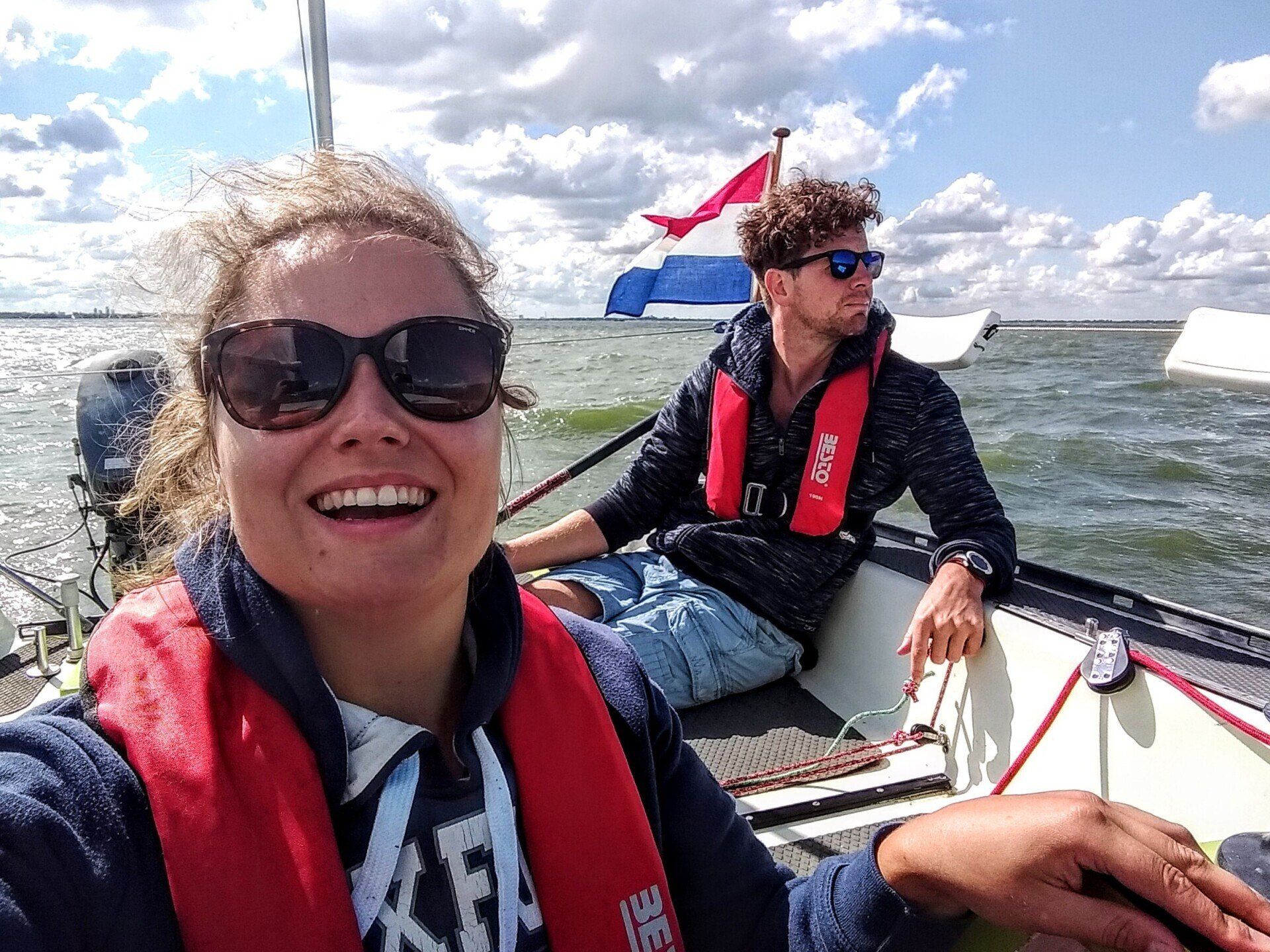Marcom A: Getting our radio communication certificate
Our experience with getting the radio communication certificate Marcom A
To travel safely off shore and certainly on the oceans, being confident in using the radio equipment makes life on board more safely. In addition, obtaining a diploma or certificate is mandatory for the use of specific radio equipment on board. After some research by talking to certain people and searching on the internet, we decided to take on the course for Marcom A. The biggest reason for us was that with this radio communication certificate you are allowed to operate all VHF equipment, such as the MF / HF and the satellite communication equipment. That would be quite useful for communication with 'land' in the middle of the ocean.
We have chosen to do this course both, with safety as the main reason! The so-called “social talk” on the radio is easy to do without a certificate. But we wanted both of us to be able to alert the coastguard or a rescue center in a proper way and not be dependent on one of us.
We wanted to obtain the certificate as quickly as possible, because we will be in possession of our boat within a few months! And should it happen that we want to go out to sea, for example during the summer holidays, we can operate the radio equipment on board. At the ‘Enkhuizer Zeevaartschool’ (nautical college), the only option within this short time frame was the 'crash course'. This is a 4 days course of which 1 day for the exams. This was very fitting for us, because then we would not have to drive up and down every Friday evening to Enkhuizen for six months. In my experience, I’m not much worth after a full week of work and certainly not if I had to take a course.
After we received the lesson book from my brother as a present for my birthday (thanks for that Syb!) we started reading chapter by chapter. In our opinion it would be good enough to have read the book and that during the course we would get more lessons on the theory. Well, we couldn't have been more wrong… The weekend before the course, I read the invitation letter again. In this letter it was stated that we were
expected to really master the theory. You can imagine that there is quite a big difference between reading a book and mastering the theory. So there was a little bit of panic, but that entire weekend we studied the theory together, made previous exams and practiced shouting 'mayday mayday mayday'!
Tuesday, April 6th was the first day of the course. During the introduction it became clear again that we were expected to master the theory. Fortunately an important part of the theory was repeated and explained during this day. Thanks to the good explanation of our excellent teacher and the atmosphere in the group, a lot of things started to make more sense to us! That was a big boost for our confidence. During the practical part of the course we were able to 'play' with simulators on the school's laptops. We had to make all kinds of assignments that had to do with ways of making contact with the shore stations or other ships. This was literally carrying out the theory we just learned! The following days we were free in how we wanted to organize our day. The days alternated with taking test exams, practicing on the simulator, practicing with the radio equipment and of course asking questions to our teacher.
After every day of school it was very nice to go 'home' again and by that I mean our wonderful stay in an
AIRBNB
that we had booked in Enkhuizen. Right in the center we booked a little ‘apartment’ with a view of the garden! The stylish and cozy interior with all the necessities made this a perfect place to relax after a long day of school. Unfortunately, the restaurants were not yet open due to the Covid situation, but there were plenty of take-out options, which was also very nice! On the day of our exam, the owner of the AIRBNB came to wish us good luck. Thanks Inge!! In addition, she had brought a delicious pastry from bakery ‘Rood’ which is well-known in Enkhuizen. Super thoughtful of her and also very fitting to the hospitality she showed us during our stay!
Fortunately, the day of the exam started with the practical part. The day before our exams, we were informed that we had been moved forward a bit in the schedule, yay! because initially we were scheduled for the end of the day. This was the most exciting part of the exam as you had to simulate together how you would respond to an emergency and what actions you had to take to properly contact the rescue organizations. This exam was a little bit nerve wrecking and did not go completely smoothly. Especially some slips of the tongue here and there, but the examiner was content with how we responded! The next part was the theory exam, which we have practiced over and over again. After seventy questions, varying from easy to difficult, we completed this exam. Then the results came in: both passed the exam, but I was JUST slightly better than Brend. This meant Brend had to buy me a six pack (beer?)!
The last part of the exam was English! Now you may be thinking 'English why? anyone can do that, right? ' well that's not entirely true. Specific terminology is used on the water to minimize the risk of confusion. This is also a safety thing! We all know the joke about the German coastguard “mayday mayday mayday we are sinking !!” and then the answer from the German coastguard would be: "what are you thinking about?" So we have certainly studied this list of specific phrases and terms! In no time this exam was also checked and we knew that we had passed all parts of this Marcom A course, hooray!! To celebrate we went to the harbour of Enkhuizen to eat some delicious fish before we set course for home.
And now we have to wait for our boat in the coming months. As soon as we are the official owners, we can make a 'test call' with our own radio equipment. Then we become more familiar with how equipment works and fine tune it! If you are also in possession of radio equipment, we might be able to chat with each other via these channels! Until then, thanks for reading and see you in the next blog!


